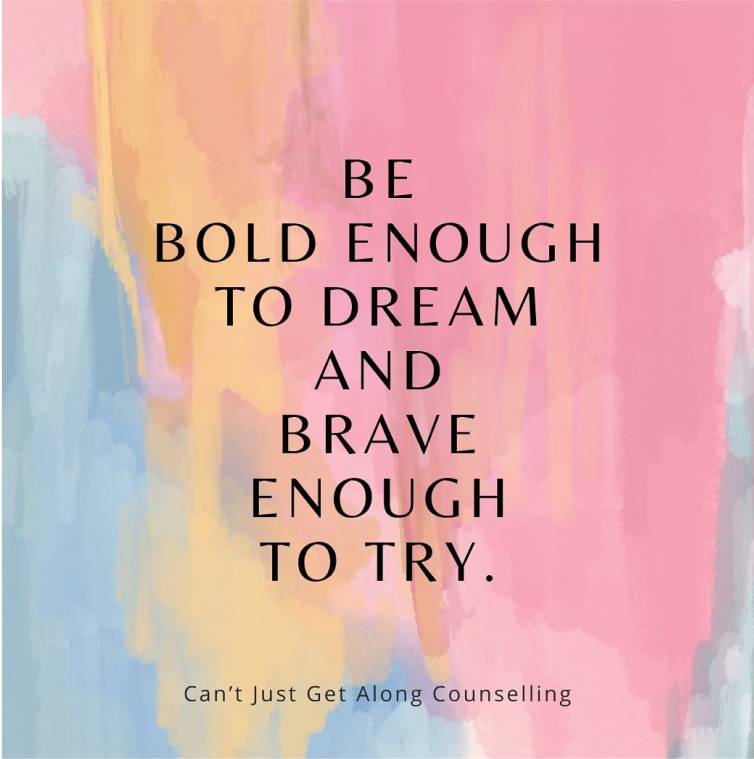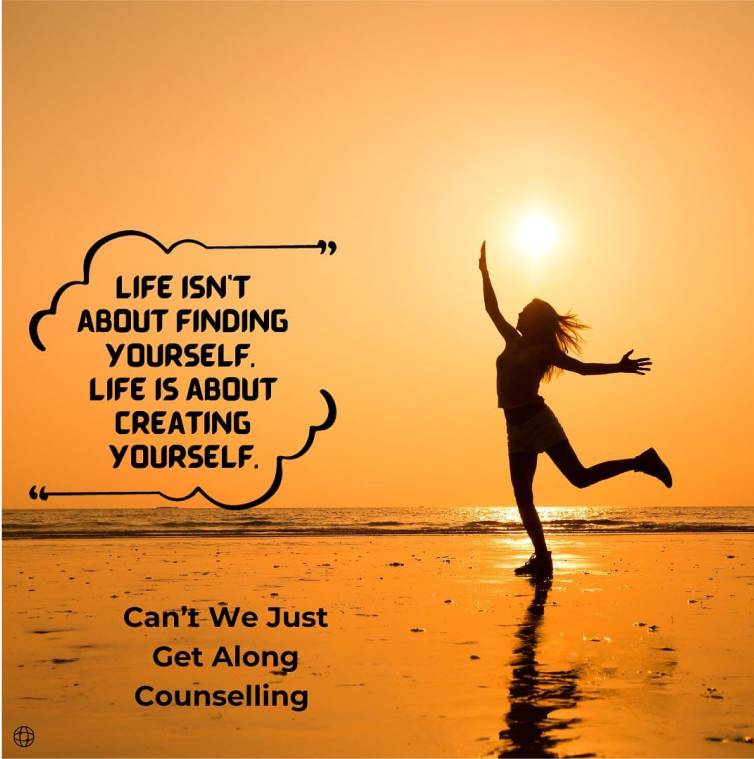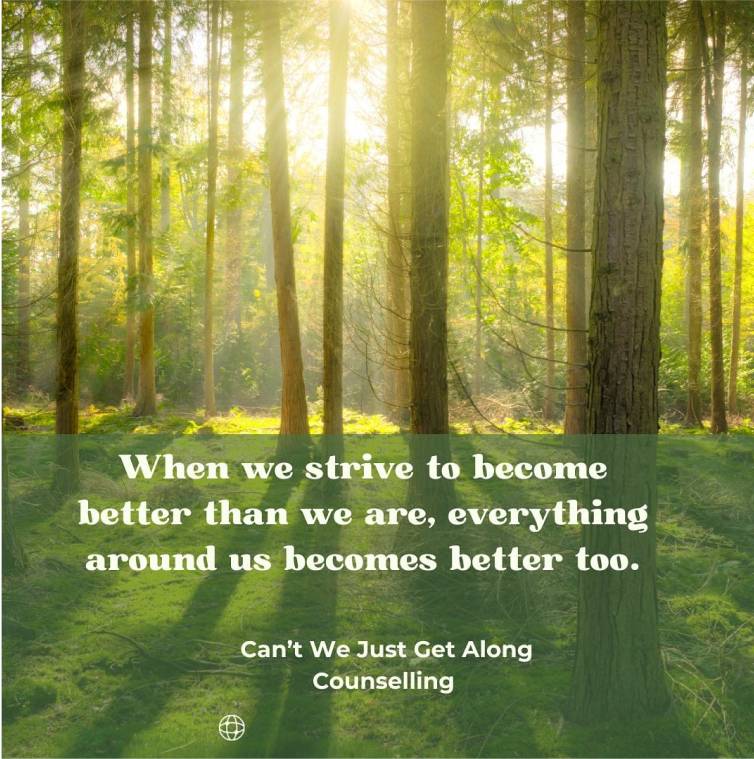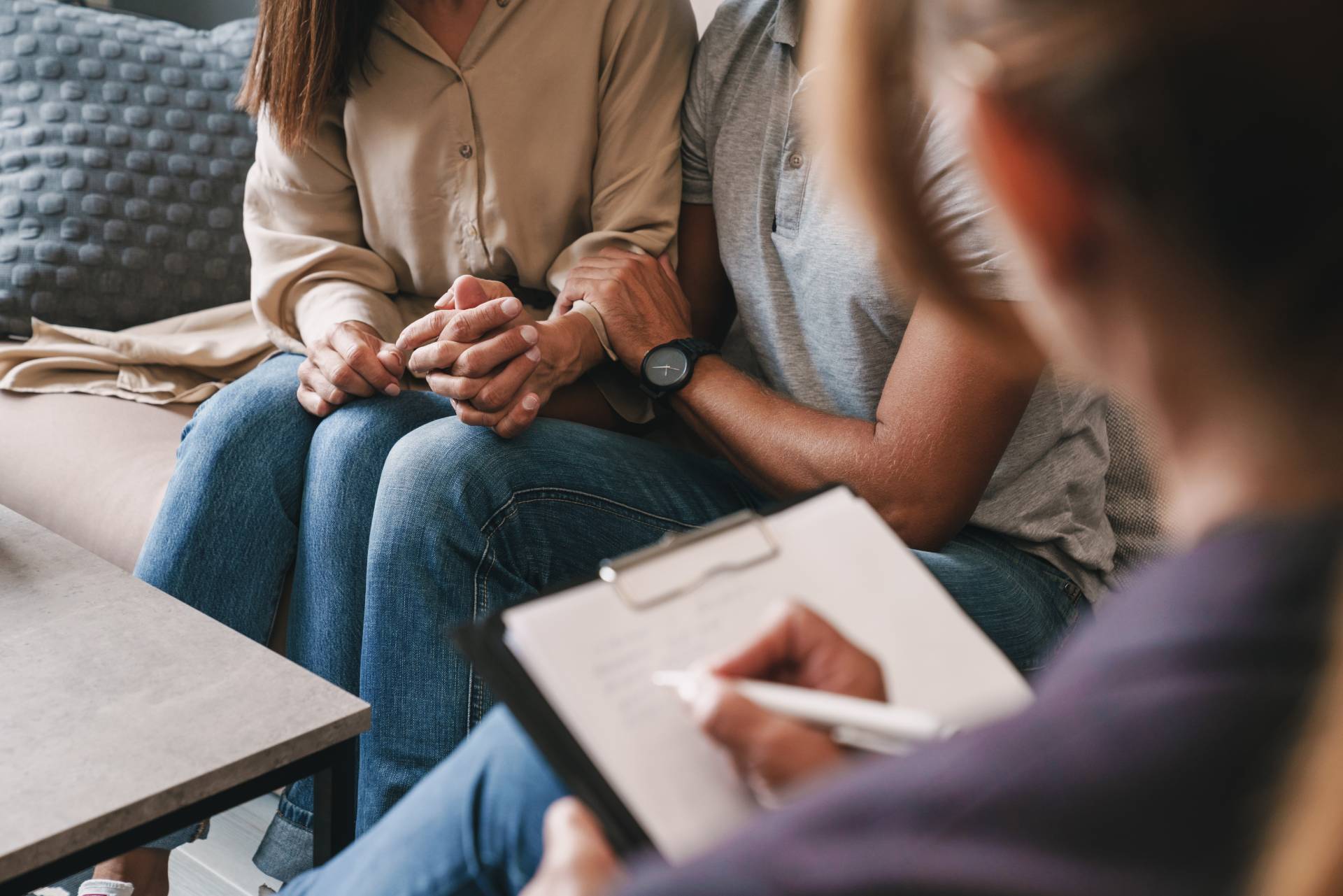Counselling Services
Calgary Couples Counselling

Online & In-Person Therapy Options
Trusted By Calgarians For Over 24 Years
Highly-Trained & Registered Psychologists
Helping Couples Grow Their Relationships
We Can Help You Rebuild Your Relationship
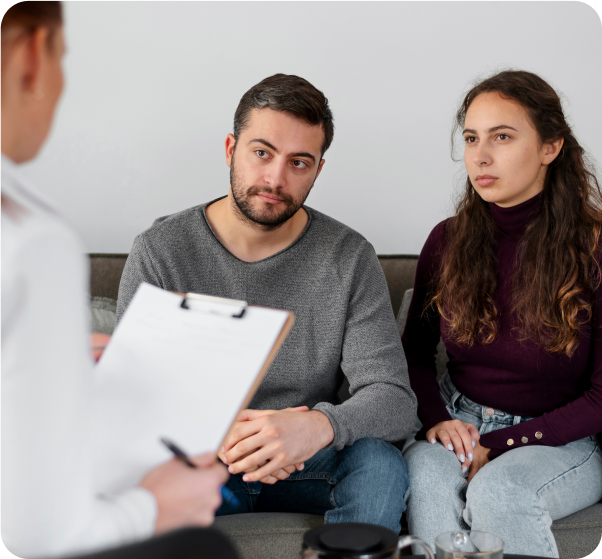
Here are some steps you can expect during your couples therapy session:
- Discover and work through challenges in your relationship.
- Develop a realistic care plan to help you both overcome relationship issues.
- Support your relationship throughout the entire healing journey.
Our couples counselling sessions can also serve as a crucial first step during times of crisis, such as coping with the loss of a child, job-related stress, or the aftermath of infidelity.
The ultimate goal of our couples therapy is to provide you with a path to improved communication, deeper connection, and lasting love..
What’s the Difference Between Healthy and Unhealthy Relationships?
Healthy Relationships:
- Have experiences that allow a couple to maintain a strong friendship
- Productively deal with issues and concerns
- Support the hopes and dreams of each partner
- Hold the ingredients of trust—including speaking gently to each other and having:
- Boundaries
- Reliability
- Responsibility
- Accountability
- Integrity
- Generosity
- Non-judgment

What Is Couples Therapy?
Couples therapy is a collaborative process where one of our trained couples counsellors and a couple work together to overcome a challenge in a relationship. This form of relationship therapy proves especially valuable when couples experience excessive relationship problems, feel uncertainty about the future of the relationship, or want to part ways amicably.


Signs You Need Relationship Counselling
- Strained communication
- Constant conflict
- Emotional disconnection
- Lack of intimacy
- Trust issues
- Parenting challenges
- Coping with a loss
- Mental health issues
- Struggle relating to one another
- Find yourself thinking of another person
- Your partner asks you to come to therapy
- Friends and/or family comment on how much you fight
- Need help with your relationship issues

How Do I Know if Marriage Counselling is Right for Me?
Consider some of the following questions to determine whether you might be a good candidate for counselling.
- Do the problems persist, even with your efforts to change the situation?
- Are you motivated to make your relationships better?
- Does your partner want to attend (or is willing to try) relationship/marriage therapy?
- Do you have the space and time to commit to attending Calgary couples counselling, either in person or online counselling via video call?
- Have you investigated the Gottman method and feel that it’s a good fit for you?
- Have you looked at the profile of your counsellor and feel that they are the right fit for you?
If you answered yes to any of these questions, couples counselling may be right for you.

Types of Therapy For Couples

The Gottman Method
The Gottman Method is an evidence-based therapy focused on strengthening skills in three relationship domains, including becoming better friends, learning to manage conflict, and creating support and dreams for yourselves as a couple.
Eye Movement Desensitization and Reprocessing (EMDR) is a therapeutic bilateral stimulation technique that aids individuals in healing from past negative experiences. We integrate EMDR into individual therapy plans for couples to address issues causing triggers within the relationship, often rooted in early attachment issues.


Our affair recovery and trust therapy is a specialized emotionally-focused therapy tailored to help couples during the aftermath of infidelity, with a primary focus on healing emotional wounds, restoring communication, and ultimately rebuilding the foundation of the relationship.
Couples anger management therapy is a therapy service that helps you and your partner understand what triggers episodes of anger in your relationship while providing helpful techniques and strategies to manage angry thoughts and reactions.


Benefits of Marriage Therapy
- Improves verbal communication
- Provides a welcoming environment for open and effective communication
- Teaches conflict resolution skills
- Strengthens emotional bonds
- Teaches how to navigate life changes successfully
- Improves mental health
- Promotes long-term happiness
- Increases self-awareness
- Offers emotional support during times of difficulties
- Aids thoughts of separation
- Builds a stronger foundation

Helpful Therapy Resources
PTSD Couples Therapy: How Healing Past Traumas Can Lead to a Healthier Relationship
Couples Therapy Approaches: Which One is Right for You?
Grounding: The Antidote to Fights and Arguments
Book an appointment with us:
Take The First Step Towards Resolving Your Relationship Challenges
Healing your relationship will help you and your partner live happier and healthier lives together. Book your next appointment, and relight the spark in your relationship.
Frequently Asked Questions
In your first session, you and your partner will meet with a trusted clinical psychologist, share the reasons for seeking counselling, and engage in open discussions about any issues affecting your relationship.
This session serves as a safe space for dialogue and helps the couples therapy provider gain an understanding of your dynamics as a couple. By delving into your concerns, the couples therapist aims to better support you on the journey to a happier marriage. Your counsellor will also go through the entire counselling process so you have a better understanding of what to expect from counselling.
The Gottman method teaches couples how to create the seven components of a healthy relationship, also known as “The Sound Relationship House”. These components include:
- Build love maps: Work to improve your friendship and understand your partner’s inner psychology.
- Share fondness and admiration: You can do this by showing affection, gaining an understanding of your partner, showing empathy, and engaging in expressions of appreciation and admiration.
- Turn towards: Discover how to state your needs. Become aware of attempts to create a connection, relate to one another, and how to respond when your partner feels misunderstood.
- Have a positive perspective: Maintain a positive perception of your partner, including problem-solving and repairing the way you communicate and your connection.
- Manage conflict: Discover how to manage your physiology during grief, deal with gridlock issues, compromise, and kiss and make up to repair arguments.
- Make life dreams come true: Create an atmosphere that encourages each partner to talk openly about hopes, values, and aspirations.
- Create shared meaning: Understand important narratives, myths, and metaphors about your relationship. Co-construct shared meaning to guide you through any life circumstance.
Gottman's therapy is structured and goal-oriented in hopes of creating a better life for the couple. Interventions are based on empirical data from Dr. Gottman’s studies and research of more than 3,000 couples.
Counselling services are considered psychotherapy, and all of our counsellors are trained and licensed therapists, so third-party providers will accept their credentials to cover the fees. Our rates are based on the recommended fee schedule of the Psychologists Association of Alberta. We accept Visa, Master Card, Debit, E-transfer and cash, and payment is required at the time services are provided.
Direct billing: Some of our providers direct bill. Please speak with your couples counsellor about direct billing options.
Services may be covered in full or in part by your insurance or benefit plan. Please check your coverage carefully by asking the following questions:
- Do I have mental health insurance benefits?
- What is my deductible, and has it been met?
- How many sessions per year does my health insurance cover?
- What is the coverage amount per therapy session?
- Is couples counselling covered?
Since the needs of each couple vary, it's difficult to give an exact timeline. However, couples working on building communication skills typically attend counselling every two weeks for about three months. If there are larger issues or concerns, such as infidelity, you may need more sessions.
Any change, even good, can sometimes cause secondary losses and gains.
Some couples report improvement after simply making the counselling appointment. This improvement is a phenomenon called "pre-counselling change," where just knowing you're going to counselling can improve your relationship. Other couples report positive changes after the first therapy session.
Negative side effects from counselling can include experiencing uncomfortable feelings and emotions as you talk about the issues concerning you. Your counsellor has a variety of strategies to help address these side effects.
After treatment, almost 90% of clients say they’ve seen progress in their emotional health and nearly two-thirds report improvement in their overall physical health. Over 75% of those receiving relationship/marriage counselling or family counselling report an improvement in their relationships.
Yes. System theory asserts that one person can change a system. Sometimes, one partner going to counselling will motivate the other to attend as they begin to see positive changes. If your partner never attends, you know you’ve done all you can on your side of the fence.
Sometimes, you won’t know if your marriage can be fixed unless you try. If you're unsure what to do with your marriage, considering a divorce/separation, or want to assess the strengths and weaknesses of your relationship, we recommend you complete an online assessment from the Gottman Institute.
This clinical research tool consists of 337 questions; your answers are completely confidential and fully compliant with HIPAA. Here's how it works:
- Accept the email invitation—your relationship counsellor will do the Enhanced Gottman Relationship Checkup
- Create a private profile
- Complete the questionnaire
- Get your results
Your relationship or marriage counsellor will contact and discuss the results with you and suggest a plan for improving and strengthening your relationship based on your scores.
Follow Us for More Therapy Insights


